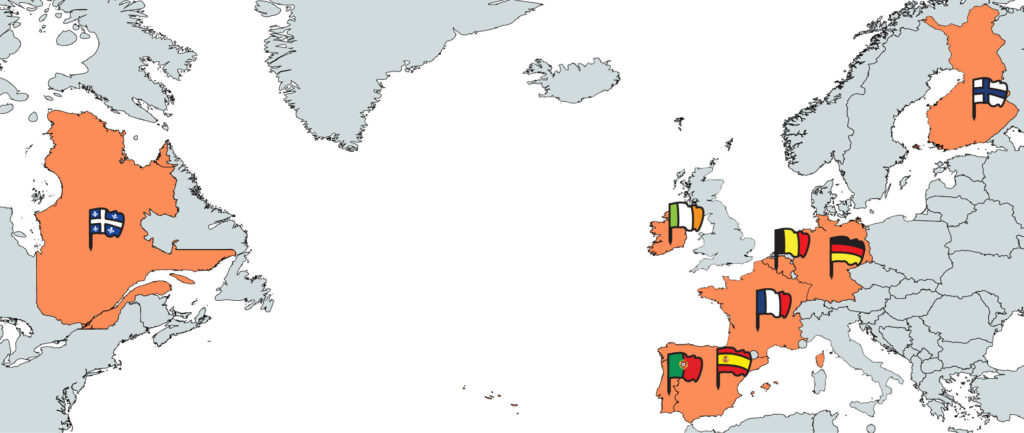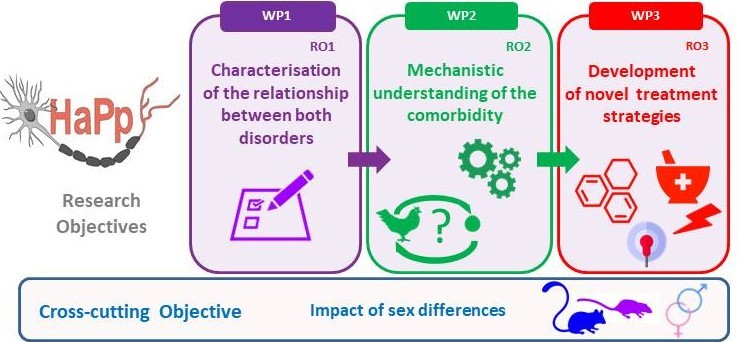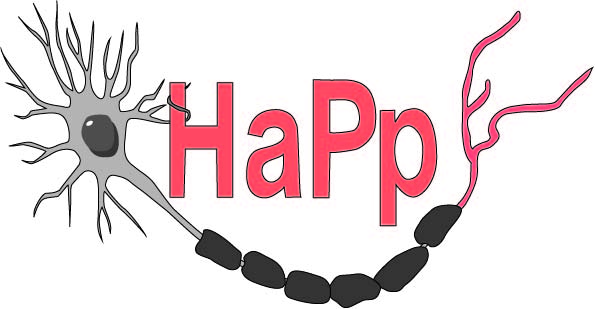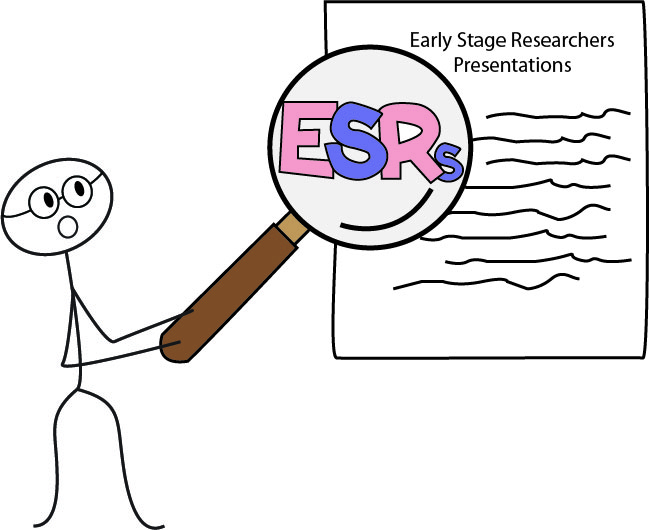European joint doctorate (EJD)
HaPpY
Comorbidity of cHronic Pain and mood disorders: breaking the vicious cYcle
Le cri/The scream, Edvard Munch
Project Presentation
Dr Ipek Yalcin (Institut des Neurosciences Cellulaires et Intégratives, CNRS, FR), coordinator of the HaPpY project
Training a new generation of talented and multidisciplinary researchers
HaPpY brings together leading experts on pain or/and mood disorders at the preclinical or clinical levels, on tool and pharmacological development and on communication and dissemination of scientific activities. They all have outstanding records of accomplishments, complementary backgrounds (biologist, pharmacist, medicine, physicist, psychologist) and expertise (neuroscience, molecular biology, neurophotonics, pharmacology, physiology,
behavioural neuroscience, genetics, clinical medicine), which ensure the multidisciplinary aspect of the training.
A la porte de l'éternité, Vincent Van Gogh
In Europe and Canada
HaPpY training is organised around three principles: International, Interdisciplinary and Intersectoral.

International: Organisations from seven EU countries (Belgium, Finland, France, Germany, Ireland, Portugal and Spain) and Canada participate in the design and implementation of the HaPpY training scheme. The participation of two Canadian organisations in the network will bring the point of view of a non-EU country.
Interdisciplinary: HaPpY will establish a framework for interdisciplinary training by bringing together experts from neuroscience, physiology, psychology, genetics, pharmacology, chemistry, physics and clinical medicine and experts in project management.
Intersectoral: Eleven academic and seven non-academic organisations are fully engaged in the design and the implementation of the HaPpY training programme.
The work Packages
We aim to reach the overall objective of the HaPpY project which is to create an optimal environment for the training of Early Stage Researchers (ESRs) to break the vicious cycle linking chronic pain and mood disorders.

WP1 covers the phenotyping of the comorbidity of chronic pain and mood disorders especially anxiety/depression in animal models and in patients. Indeed, for the first time, a multi-centre comparison of several animal models of chronic pain and stress/anxiety/depression will be performed that will provide the development and standardisation of models and reinforce the reliability and reproducibility of studies across labs. One of the major reasons why the preclinical targets identified in animal studies do not translate into clinical trials is due to the basic nature of many of the preclinical tests merely examining helplessness or avoidance behaviours. We will develop new, ethologically relevant behavioural paradigms to increase the translatability of data. In parallel, clinical research will ensure the development of cognitive-emotional tasks to predict and diagnose the comorbidity of chronic pain and mood disorders by comparing behavioural outcomes, imaging datasets and physiological recordings from well-characterized cohorts.
ESRs involved: 1-7, 9, 12, 13 and 15
WP2 contributes to a mechanistic understanding of molecular, cellular and neuroanatomical bases of the comorbidity in animal models and in patients. One of the major aims of the WP is to identify biomarkers for prediction/diagnosis and to revealing new drug targets.
ESRs involved: 1, 2 and 5-15
WP3 focuses on developing new treatment strategies guided by WP1-2. Two strategies will be adapted: (i) optimize the use of already existing pharmacological/nonpharmacological treatments; (ii) validate new preclinical targets identified in WP2 and provide novel insight for using brain stimulation which will facilitate early-stage translation of novel treatment strategies towards the clinic.
ESRs involved: 1-4, 6, 9, and 11-15
HaPpY - EUROPEAN UNION’S HORIZON 2020 RESEARCH AND INNOVATION PROGRAMME

This project has received funding from the European Union’s Horizon 2020 research and innovation programme under the Marie Skłodowska-Curie grant agreement No 955684
Part of H2020-MSCA-ITN-EJD programme

